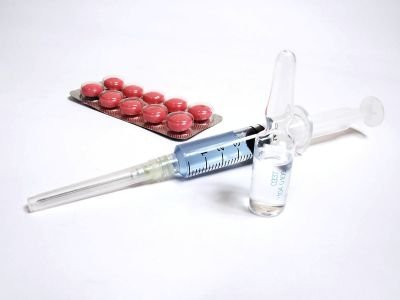
The results of the clinical trial in Thailand have been published in the online publication of The Lancet
Singapore: Sanofi Pasteur, the vaccines division of Sanofi has published clinical study results of its dengue vaccine candidate in the online publication of The Lancet. The results of the trial conducted in Thailand show ability of the vaccine candidate to protect against dengue fever caused by three dengue virus types. The results of the efficacy study confirm the excellent safety profile of the vaccine candidate.
Dengue fever has emerged as one of the biggest challenges in the emerging economies of the world. In the Philippines, one of the Southeast Asian economies, the number of dengue cases have been reported to be at an all time high. According to data provided by the Philippines Department of Health recently to the media, the number of cases of the mosquito-borne viral infection stands at 80, 745 in the country. This study was conducted by Sanofi in 4,002 children aged 4 to 11 years, in partnership with the Mahidol University under the patronage of the Thai Ministry of Public Health in Muang district of the Ratchaburi Province.
Sanofi is conducting large-scale phase III clinical studies with 31,000 children and adolescents in Latin America (Mexico, Colombia, Honduras, Puerto Rico and Brazil) and in Asia (the Philippines,
Vietnam, Malaysia, Indonesia, and Thailand).
"The complexity of dengue virus infection has hampered vaccine research for decades. This is the first time in 50 years of dengue research that I have seen a vaccine that protected a large group of children from clinical disease caused by dengue viruses. Best yet, the vaccine met the highest safety expectations," said Dr Scott Halstead, International Vaccine Institute, Seoul, Republic of Korea. "These results should be a source of hope for millions of parents whose children are at risk of severe dengue, a life-threatening disease which often requires hospitalization."
The full analysis of vaccine efficacy against each serotype, reflecting real-life conditions showed vaccine efficacy to be 61.2 percent against dengue virus type 1, 81.9 percent against type 3 and 90 percent against type 4. One of the dengue virus types (serotype 2) eluded the vaccine. Analyses are on to understand the lack of protection for serotype 2 in the particular epidemiological context of Thailand.
"Having worked in the field of dengue research for over four decades, with much of my efforts focused on prevention and control, it is very exciting for me to see a safe vaccine candidate that provides protection against 3 of the four dengue serotypes," said Professor Duane Gubler, Program on Emerging Infectious Diseases, Duke-NSU Graduate Medical School, Singapore. "Dengue is a major public health concern for over half of the world's population and is a leading cause of hospitalization and death among children in endemic countries. Because mosquito control has failed to control this disease, an effective vaccine will be a critical tool that can change the life of millions living in endemic countries. I see this success as the beginning of a new era of effective control."
According to Dr Roberto Tapia Conyer, general director of the Carlos Slim Health Institute, former undersecretary of Health in Mexico, "These dengue vaccine results bring a significant promise in the context of the expanding dengue disease burden worldwide and the absence of specific treatment. Work will continue to study this vaccine and the circulation of dengue viruses globally, but in the meantime, the public health community can now formulate the best possible immunization policies and prepare for implementation of vaccination campaigns in countries heavily affected by
dengue."
A feature of dengue epidemiology is that the relative prevalence of virus types in a given area evolves with time. Large-scale phase III clinical studies of Sanofi Pasteur's dengue vaccine candidate are underway with 31,000 children and adolescents in 10 countries in Asia and Latin America. These studies will generate important additional data in a broader population and in a variety of epidemiological settings to define the best conditions to set up vaccination programs in order to protect people at risk of dengue.




